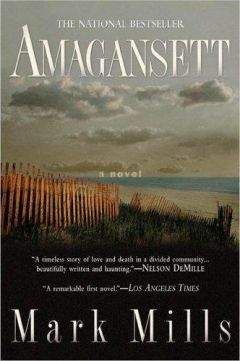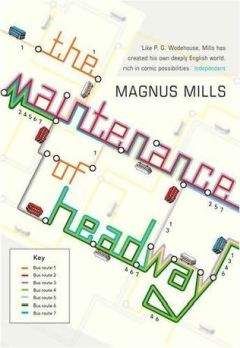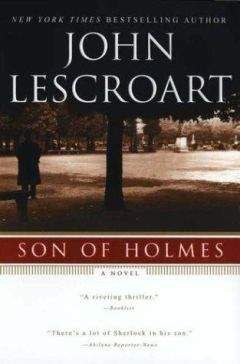Mark Mills - The Information Officer
He had the throttle wide open when he saw it—a rogue line of bomb bursts coming at him out of the darkness to his left—and he realized almost instantly that he was done for. The geometry was against him, the leaping trail of destruction destined to converge with his own trajectory a short way down the road, any moment.
He braked hard, the back wheel sliding away from under him. He was aware of a strange feeling of weightlessness, of flying, before a blinding white light snuffed out his senses.
CARMELA CASSAR HAD SOBBED AND SQUIRMED AND struggled the moment the sedative had worn off. Lilian, on the other hand, just lay there on the table, inert, denying him any satisfaction. Or so she thought. She wasn’t to know that it didn’t matter to him either way. If anything, her self-possession was a welcome challenge. It gave him something to work with.
He rose from the chair and approached the table.
She was spread-eagled on her back, her wrists and ankles lashed to the four legs. The gag and the blindfold were the same ones he had used on Carmela.
She flinched when he placed his hand on her chest, assuming that he was feeling for her breast.
“Don’t worry,” he said. “Not yet.”
He was feeling for her heart. Again, he was impressed. It wasn’t thumping away beneath her rib cage, betraying her apparent composure.
“I’m beginning to understand what Max sees in you.”
She didn’t like the mention of Max. The thought of him upset her. It showed in her face.
He smiled, sensing an opening. She might be able to close down her body, but she couldn’t shut off her ears.
“He has a certain quality about him, doesn’t he? Oh, I’m not talking about the good looks—those will fade with time. It’s something else, something more lasting. Men feel it too. He’s not a threat to men. Maybe that’s what it is. He doesn’t try to impose himself on people. He’s not looking to prove anything.”
He lit a cigarette. Rather than blowing out the match, he held it close to her thigh—absently, almost without thinking—the flame licking at the skin just below the hem of her black skirt. Her leg jerked, twisting away from the heat. He dropped the match onto the floor.
“You have great legs, you know? They’re not quite as long as Mitzi’s, but your breasts are larger. Oh, I’m sorry, I’m forgetting, you don’t know about Mitzi, do you? I can’t imagine Max has told you about her. Why would he?”
All the while, he was searching her body for signs.
“I’m not sure you would like her. She’s very different from you. Not unintelligent, but frivolous, unreliable. Flighty—that’s the word I’m looking for.”
Still no reaction.
“Why he needs her in his life as well as you, I don’t know.”
The sinews stood out in her slender arms as she clenched her fists.
“The truth is often unkind. But it is what it is, and we just have to put up with it. In the grand scheme of things, a man torn between two women is hardly news, especially if he’s sleeping with only one of them.” He paused to allow his words to sink in. “He was with her three nights ago. I saw him go in and I saw him come out, and at one o’clock in the morning I don’t think they were playing backgammon.”
Lilian was visibly upset now, doing her best to hide it.
“Maybe with time he would have told you about her. Between you and me, I think he would have. Sadly, we’ll never know.”
DAY NINE
THERE WAS NO SUDDEN AWAKENING. HE CAME BACK TO consciousness slowly, on a building wave of pain. It carried him inexorably toward the shore and dumped him in a heap onto the beach. Only it wasn’t a beach, because there was a wall and something lying on top of him, pressing down on his leg.
He remembered now: the stick of bombs converging on him, the motorcycle sliding away, then flying, weightless, airborne …
As his eyes adjusted to the pale wash of moonlight, he saw that he was lying at the bottom of a steep bank, jammed up against a stone wall, his left leg caught beneath the motorcycle. How long he’d been there, he didn’t know. There was a smell of gasoline, and the thought of the precious liquid leaking away stirred him into action.
Once he’d freed his leg, he was surprised to find he was able to stand. He checked himself over with his hands, his palms raw and throbbing. The bleeding seemed superficial—lots of grazes and some deeper cuts on his legs. There was also a large bump on the back of his head, congealed with blood. He couldn’t place too much weight on his left ankle. It didn’t feel broken, though, just badly sprained.
He was more worried about the motorcycle, but she also seemed to have survived. There was still air in both tires, and although the handlebars were slightly out of alignment, the steering felt fine. From the sound of it, there was also enough gas in the tank to see him to Valetta.
He made his way up the bank, trying to piece together what had happened. He had come off the road at a bend. He hadn’t seen it at the time, and it wasn’t the reason he’d hit the back brake so hard. He had braked because some survival instinct had told him it was better to be close to the ground when a bomb went off. He could make out the large crater the bomb had torn in the shoulder of the road. He’d been lucky. The bend had probably saved him, the steep bank shielding him from the blast as he’d left the road.
The airfield at Luqa was recovering from the onslaught. He could see a few fires still burning, and every so often a delayed-action bomb would go off.
He turned at the sound of an approaching vehicle, traveling fast. He guessed what it was before he saw it—an ambulance racing to the scene. They were about the only things left on the roads since gas rationing had been tightened, and he often joked with Freddie that he and his kind were a bloody menace to other drivers.
He was right. It was an ambulance going hell-for-leather. He was about to flag it down when something stayed his hand—something Elliott had said to him, something he hadn’t thought about since.
The question isn’t where he took Carmela Cassar, but how he took her there.
He tried to reject the idea taking shape in his head, but it refused to be budged. The thought ripped through his brain, touching and changing everything in its path. The world as he’d been looking at it blurred into nothingness, and when it fell back into focus, he was no longer on the outside looking in. He was right at the heart of it, able to see things from all angles with a crisp and terrifying clarity.
“Oh my God,” he said quietly.
He knew there were seventy-two steps because he’d counted them before. He counted them now, not for old times’ sake but because each one sent a sharp pain shooting up his left leg. Maybe the ankle was broken after all.
He knew there was a good chance Lionel would be there—his last night on the island—but Max didn’t care. He didn’t even pause on the landing before knocking.
Mitzi eventually answered the door looking like something out of Dickens, with a dressing gown tightly tied at her waist, and carrying a chamber candlestick.
He was leaning against the doorjamb for support.
Her face fell. “My God, Max, what happened to you?”
“Who did you tell about us?”
“He’s here,” she said tightly.
“Who did you tell about us?”
“Max …,” she pleaded.
It was too late. Lionel materialized from the gloom behind her.
“I say, old man, are you all right?”
Max ignored him. “Who did you tell?”
Mitzi turned to Lionel. “He’s obviously not himself.”
“I’ll say. What’s going on? What do you mean?”
Max stared at them both. He saw the silent pact that had brought them together and the emptiness hanging between them, the lies. He could change it all in a moment. He could take it from them. He could hand the hurt straight back to Mitzi. It was so easy. Too easy.
“I’ve been seeing a girl in the office,” he said finally. “She’s Maltese. She’s also married. I made the mistake of telling your wife here. It now seems that half the bloody garrison knows.”
“Are you drunk?”
“A little. Enough to crash my motorcycle.”
Lionel edged past Mitzi protectively. “I think you should leave.”
Mitzi placed a restraining hand on Lionel’s arm.
“Freddie,” she said. “I told Freddie.”
There was gratitude in her eyes for the lie he’d concocted.
“When?”
“Oh, for goodness’ sake—”
“Shut up, Lionel.” Mitzi looked back at Max. “A few months ago, maybe more. January, I think.”
Max nodded his thanks, and she turned and wandered back to the bedroom. Lionel wasn’t done with him yet, though.
“You’re a bloody disgrace to your service!”
“Am I, Ken?”
He saw a satisfying flicker of alarm in Lionel’s eyes. “I know about you and Mary Farrugia, and I’m guessing you also brushed with Loreta Saliba and Carmela Cassar.”
“I have no idea what you’re talking about.”
“Yes, you do. They’re all dead. Murdered.”
“Murdered?”
“Don’t worry. I know it wasn’t you.”
He turned and hobbled off down the stairs.
He had never given his service revolver much thought—he strapped it on each morning, removed it before bed—but now he felt naked without it. Finding a replacement wasn’t going to be easy at five o’clock in the morning. There was an obvious place to start, though. It was also on his route.
He was surprised to find the boys at the Bofors gun site near his flat already up and about. They were peering down over the bastion wall into the dark abyss of Grand Harbour. It was another half hour till sunrise, but way to the east, beyond the harbor mouth, the sky was already brightening.
“There!” said one of them, pointing.
It was just possible to make out the dark form of a ship sliding through the gloom toward them.
“It’s the Welshman. She made it!”
There were cheers and slaps on the back, and that’s when they noticed they had company.
“It’s only me,” said Max.
“You see that, sir, the Welshman got through!”
“Cigarette, sir?”
“Cup of tea, sir?”
“Foot rub, sir?”
The joker got his laugh. Max was in favor with the Manchester men since their heroics had been reported in the Weekly Bulletin, as he’d promised they would be.
“Just a quick word in private with Sergeant Deakin, if he’s around.”
“Right here, sir,” came a voice from the darkness.
Max led Deakin a little way off. “I don’t have time to explain. I need to borrow your gun.”
“My gun?”
“Your service revolver. I wouldn’t ask if it wasn’t important.”
“You know I can’t, sir. It’s against regulations.”
“It’s a matter of life or death.”
“That’s the truth. The CO’d ’ave my guts for garters if he found out.”
“What if I took it off you by force?”
“You’re welcome to give it a go, sir, but if you don’t mind me saying, you’re not moving too good.”
“Okay,” said Max, “here it is. My friend, my best friend, is probably a German agent. He’s also planning to kill a girl I care very much about. For all I know, she’s dead already. So you see, I’m going to have to give it a go whatever.”
“Holy mackerel,” said Deakin softly. “Are you sure you’re all right in the head?”
“Never better. Actually, that’s a lie. But what I’ve just told you is the truth. You have my word on it.”
After a few moments, Deakin handed over his revolver.
“You’re a good man, Sergeant.”
“Yeah, well, just remember to bring that up at my court-martial.”
The road to the naval hospital at Bighi skirted Grand Harbour on its southern side, taking him through the Three Cities, right past the dockyards. He thought about stopping off and enlisting the support of the military police, but procedures would have to be followed, phone calls made, authority sought. Precious minutes, hours even, would tick by. Besides, the situation might call for the kind of behavior not exactly endorsed by the rule book. He had no problem with that, but officialdom would see things differently.
No, this was a personal matter now—or rather, it had been all along. Only his self-absorption had kept him from grasping that fact earlier. It had been right there in front of him, not just staring him in the face but prodding him in the chest, kicking him in the shins.
The notion that the coincidence had been anything more than just that—the capricious hands of chance at work—had never even occurred to him: a killer on the loose, a crew member from the Upstanding, which just so happened to be the submarine commanded by the husband of the woman with whom he’d been having an affair.
He hadn’t made the connection before because he’d assumed that no one else knew about Mitzi and him. But she’d set him straight on that. Freddie knew; Freddie had known since the beginning of the year. Freddie, who had drawn him into the intrigue in the first place. Freddie, with his talk of left-handers and Have you ever wondered if it’s Lionel? Max could almost see Freddie laughing to himself as he tinkered with their sick little triangle of deceits and clandestine affairs, the puppet master surveying them all from on high, pulling their strings, jerking their limbs. Maybe Elliott had been right, maybe Freddie was a moralist at heart—one who had no scruples when it came to his own behavior.
Where Elliott fitted, he didn’t yet know. Why had he helped Max, nudging him toward the answer? Did he already know the truth? Had he suspected all along? For now, Max was happy to forgo the answers. All that mattered to him was finding Lilian. That one goal consumed him. It also scared him, because he saw just how far he was willing to go to get her back. Freddie had made the rules, and Max was ready to play by them.
The naval hospital at Bighi stood square, squat, and ugly on the tip of the cliff-girt promontory beyond Vittoriosa, near the mouth of Grand Harbour. Like the other hospitals on the island, it had suffered at the hands of the Luftwaffe in the past month. Unlike some of them, it was still operational.
The nurse at the main desk couldn’t say for certain where Freddie was, so she directed Max to the surgeons’ sleeping quarters. This was after she had offered to summon the duty medical officer to check him over, assuming that he’d shown up in search of treatment.
He hobbled his way to the low run of stone huts on the grounds near the east wing of the building. A slumbering doctor, not happy at being woken, directed him to Freddie’s digs two huts down.
Freddie wasn’t there, but his roommate was.
“You just missed him. He’s headed for the docks.”
“The docks?”
“To help with the wounded from the Welshman. She hit a couple of mines on her way in.”




